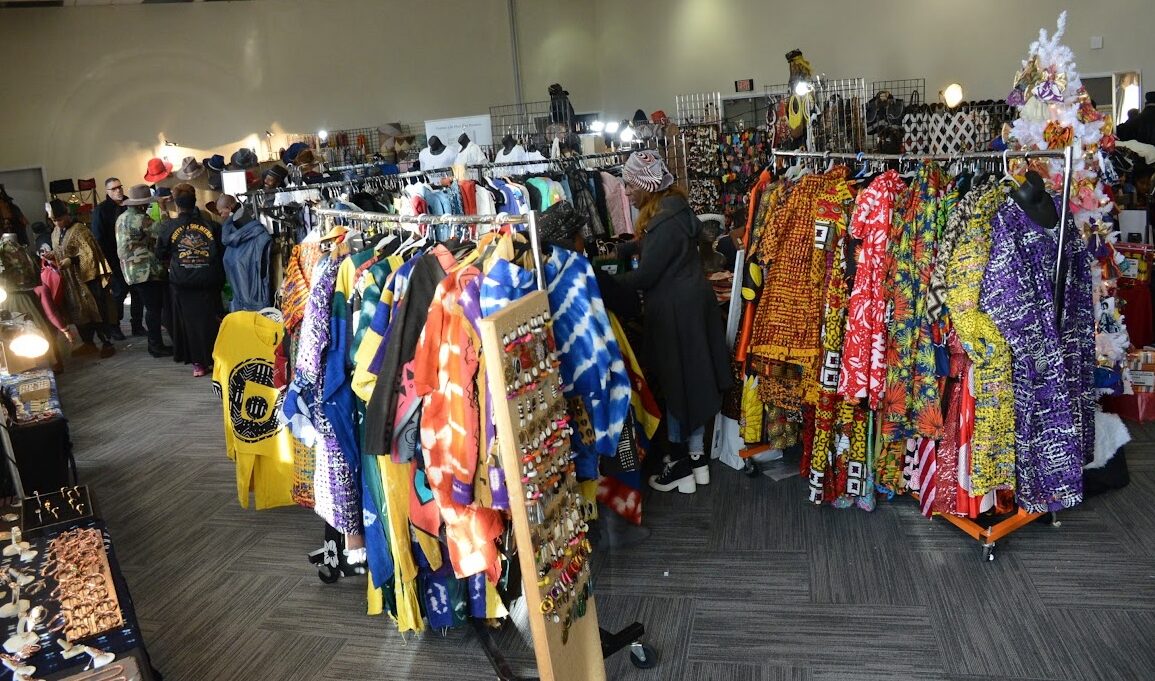
Through a cooperative economic worldview, Black artisans and entrepreneurs participating in the annual “BZB Shop Til Ya Drop” showcase, held at Shiloh Baptist Church Family Life Center in Northwest D.C., boost their audience engagement, connect consumers to the African diaspora and encourage longevity for Black-owned businesses.
Washington is the ideal place for such an event, as 35% of businesses in the city are Black-owned– one of the largest concentrations across the nation. After Black businesses faced significant challenges during and following the COVID-19 pandemic, such showcases are crucial to their revitalization and sustenance.
Far before coronavirus was on the radar, Juanita “Busy Bee” Britton, founder and owner of BZB International Inc., has always supported the prosperity of Black-owned enterprises.
“I work to connect communities with local businesses,” said Britton. “I’ve been doing it all my life, actually– since [I was] a young girl.”
From booming success with her lemonade stands as a child to working with the State Department for the Queen Mother in Ghana to create relationships between embassy officials and people in the community, Britton is a pillar and advocate for unity and collective wealth across the diaspora. She continues to keep this philosophy alive through each year’s exhibit.
“Our big goal is to get people to come and understand that our small businesses need the influx of business just like the big box stores,” she said.
Designer and owner of The Art of Leather Marvin Sin, who has participated in the BZB marketplace for approximately 10 years, has witnessed the decline in minority enterprises throughout his 50 years of experience. Through instances like the replacement of leather vendors in New York with retail designers and the collapse of the Belmont Art Collective in Adams Morgan due to rent increases, Sin recognizes the crucial role “Shop Til Ya Drop” plays in the Black entrepreneurial community.
“[At] each table, at each space, there is somebody or somebodies who have made a conscious decision to create and generate an independent enterprise that has the potential of growing, expanding [and] employing others or supporting and sustaining their families in a way that enrich… [and] provide an economic underpinning for our community,” said Sin.
A Collective Commitment to Ujamaa
Ethiopian clothing and jewelry business Kelem is a physical representation of the Kwanzaa principle Ujamaa (Cooperative Economics)– the concept of committing to collective social wealth and strengthening communal bonds by doing so– through showcasing an array of artwork created in Ethiopia by master artisans.
Co-owners Tensae Haile and Winta Teferi gave audiences a glimpse of the East African country’s rich and colorful culture through hats woven by farmers in Konso, jewelry comprised of recycled beads, dolls made by a group of four women with disabilities and creations from a leather business owned by a group of young men. Displaying these handcrafted items is Haile and Teferi’s way of culturally and artistically enriching the diaspora by directly connecting it to Africa.
“We’re so removed from certain cultural things that we get that spiritual connection here, but also in the meantime support people who just never get compensated for all the creativity they put out in the world,” said Teferi. “It’s not just creative, but also… keeping alive old, very incredible artistic traditions.”
Kelem’s mission to give African stories and histories a global platform directly aligns with Britton’s desire to create a safe space where members of the diaspora can depend on each other. Despite colonization’s dismantling of a unified diaspora, Britton is relentless in her efforts to strengthen entrepreneurial bonds across the diaspora.
These collective desires lead back to the concept of cooperative economics as they strengthen the idea that wealth should benefit all involved, rejecting monopolies and exploitation. By adhering to an ideology that prioritizes the community’s collective well-being rather than a single person or entity’s affluence, Black entrepreneurs create a space where their businesses can prosper and withstand the test of time.
Sin believes that in many cases, Black businesses operate with a commitment to Ujamaa as a means of survival. As a Pan-Africanist, he recognizes the power in the amassed creativity the BZB showcase displays and the significant cultural experiences it creates.
“The BZB event is like an undiscovered jewel in the community,” he said. “What you see is… an economic incubator that’s really sustaining and launching enterprises into the future, and it’s a very powerful experience on so many levels.”


